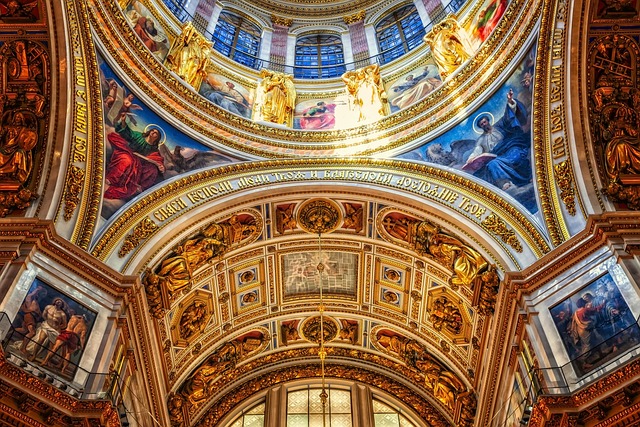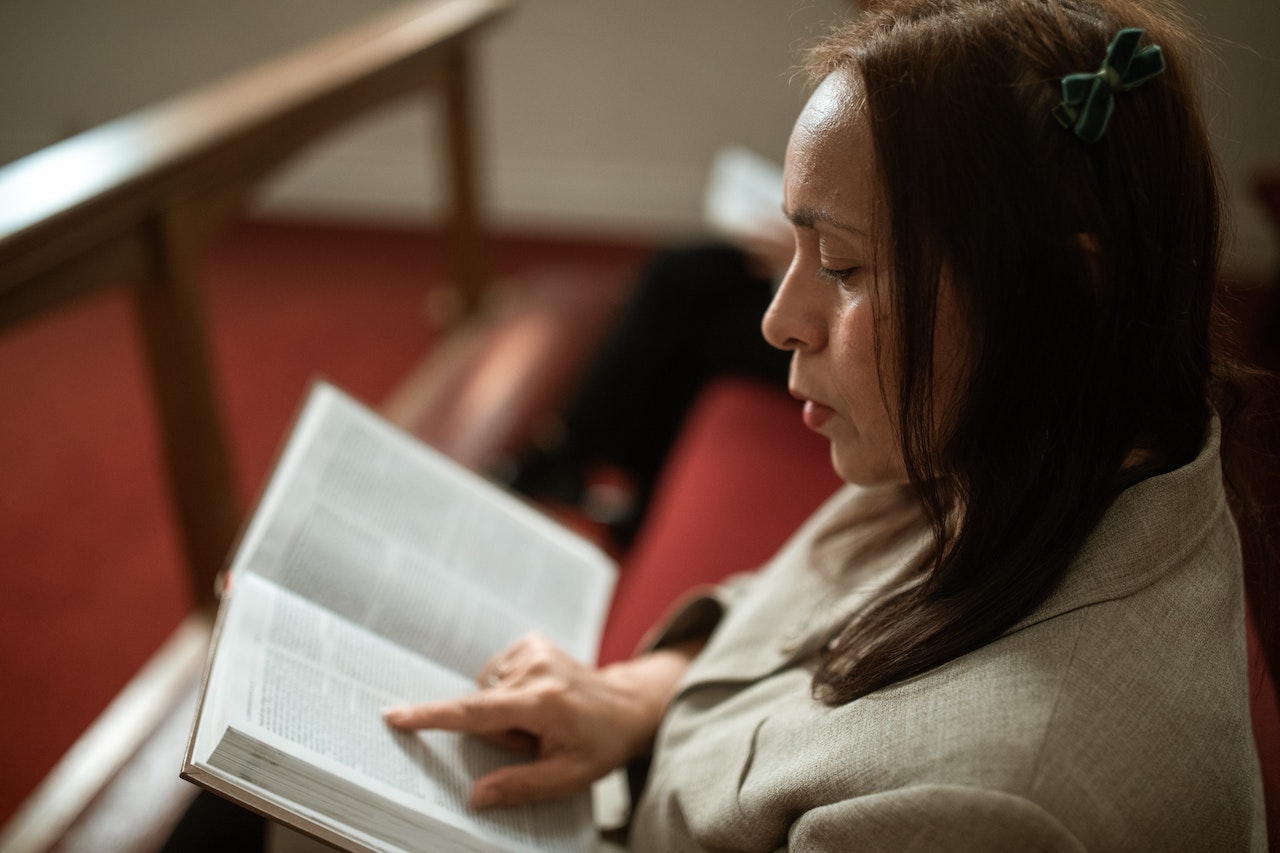Orthodox Christianity is a branch of Christianity that follows the traditions and teachings of the Eastern Orthodox Church. This branch celebrates various holidays throughout the year, each with its own significance and customs. In this introduction, we will explore and provide information about the Orthodox holiday currently being celebrated.
Table of Contents
Understanding the Significance of Easter in Orthodox Christianity
Easter is a holiday that holds great significance in Orthodox Christianity. It is a time of joy and celebration, marking the resurrection of Jesus Christ from the dead. While Easter is widely celebrated by Christians around the world, the Orthodox observance of this holiday is unique and steeped in tradition.
One of the key differences between Orthodox Easter and other Christian denominations is the date of its observance. While Western Christianity follows the Gregorian calendar, Orthodox Christians adhere to the Julian calendar. As a result, Easter is often celebrated on a different date. This can sometimes lead to confusion, with people wondering why Orthodox Easter seems to be “late” compared to the Easter celebrated by their friends and family.
The reason for this discrepancy lies in the way the date of Easter is calculated. According to the Council of Nicaea in 325 AD, Easter should be celebrated on the first Sunday following the first full moon after the vernal equinox. However, the Western and Eastern churches use different methods to determine the date of the equinox and the full moon. This is why Orthodox Easter can fall anywhere between early April and early May, while Western Easter typically falls between late March and late April.
Despite the difference in dates, the significance of Easter remains the same for Orthodox Christians. It is a time to commemorate the resurrection of Jesus Christ, which is considered the cornerstone of the Christian faith. The resurrection is seen as a triumph over death and sin, offering hope and salvation to believers.
The Orthodox Easter celebration begins with Great Lent, a period of fasting and spiritual preparation that lasts for 40 days. During this time, Orthodox Christians abstain from certain foods and engage in prayer, repentance, and acts of charity. The purpose of this fasting is to purify the body and soul, allowing believers to fully participate in the joy of Easter.
Holy Week, the week leading up to Easter, is particularly significant in Orthodox Christianity. It is a time of intense prayer and reflection, as believers follow the events leading up to Jesus’ crucifixion and resurrection. Each day of Holy Week has its own special significance, from the triumphal entry of Jesus into Jerusalem on Palm Sunday to the solemnity of Good Friday, when Jesus is crucified.
The highlight of the Orthodox Easter celebration is the midnight service on Holy Saturday. This service begins in darkness, symbolizing the tomb of Jesus, and culminates in the joyful proclamation of Christ’s resurrection. The church is filled with light as the priest announces, “Christ is risen!” and the congregation responds, “Truly, He is risen!” This moment is a powerful reminder of the hope and victory that Easter represents.
Following the midnight service, Orthodox Christians gather for a festive meal known as the Paschal feast. This meal is a time of joy and fellowship, as families and friends come together to celebrate the resurrection of Jesus. Traditional foods such as lamb, eggs, and sweet bread are enjoyed, symbolizing new life and the victory of Christ over death.
In conclusion, Orthodox Easter is a holiday of great significance in Orthodox Christianity. While it may be celebrated on a different date than Western Easter, the message and meaning of Easter remain the same. It is a time to remember and rejoice in the resurrection of Jesus Christ, offering hope and salvation to all who believe.
Exploring the Traditions and Customs of Christmas in the Orthodox Church

Christmas is a time of joy and celebration for Christians all around the world. While many people are familiar with the customs and traditions associated with Christmas in the Western Church, fewer are aware of the unique practices observed by the Orthodox Church. In this article, we will explore the traditions and customs of Christmas in the Orthodox Church, shedding light on the rich cultural heritage that accompanies this holy season.
One of the first things to note about Christmas in the Orthodox Church is that it is celebrated on a different date than in the Western Church. While December 25th is the widely recognized date for Christmas in the West, the Orthodox Church follows the Julian calendar, which places Christmas on January 7th. This discrepancy in dates is due to the use of different calendars by the two branches of Christianity.
The Christmas season in the Orthodox Church begins with a period of fasting and preparation known as Advent. This period lasts for 40 days and is a time of reflection and spiritual growth. During Advent, Orthodox Christians abstain from certain foods and engage in increased prayer and acts of charity. This period of fasting helps to create a sense of anticipation and readiness for the birth of Christ.
On Christmas Eve, Orthodox Christians gather in their churches for a special service known as the Vigil. This service is marked by beautiful hymns and prayers, creating a reverent atmosphere. At midnight, the moment of Christ’s birth, the church bells ring out, and the congregation joyfully proclaims, “Christ is born! Glorify Him!” This proclamation is followed by the singing of hymns and the reading of the Gospel accounts of Christ’s birth.
After the Vigil, families return home to enjoy a festive meal together. Traditional dishes vary depending on the country and region, but common foods include roasted meats, fish, and a variety of sweets. In some Orthodox cultures, it is customary to leave an empty place setting at the table for any unexpected guests or for the souls of departed loved ones to join in the celebration.
Another unique aspect of Orthodox Christmas is the custom of the Nativity Fast. This fast begins on November 28th and lasts until Christmas Eve. During this time, Orthodox Christians abstain from meat, dairy, and other animal products. The purpose of this fast is to purify the body and soul in preparation for the birth of Christ. It is seen as a way to focus on the spiritual significance of Christmas and to detach from worldly desires.
In addition to the religious observances, Orthodox Christmas is also a time for cultural traditions and customs. In many Orthodox countries, such as Russia, Ukraine, and Greece, it is common to exchange gifts on New Year’s Day rather than on Christmas. This tradition is rooted in the fact that Christmas was not widely celebrated during periods of communist rule, and New Year’s Day became a substitute for Christmas festivities.
In conclusion, Christmas in the Orthodox Church is a time of deep spiritual significance and cultural celebration. From the fasting and preparation of Advent to the joyous proclamation of Christ’s birth, Orthodox Christians honor this holy season with reverence and joy. Whether it is the unique date of celebration, the special Vigil service, or the traditional foods and customs, Christmas in the Orthodox Church is a time to come together as a community and rejoice in the birth of Christ.
The Meaning and Celebration of Epiphany in Orthodox Faith
Epiphany, also known as Theophany, is a significant holiday celebrated in the Orthodox faith. It holds great importance and is observed with great reverence by Orthodox Christians around the world. This holiday commemorates the baptism of Jesus Christ in the Jordan River by John the Baptist.
The word “Epiphany” comes from the Greek word “epiphaneia,” which means manifestation or appearance. It signifies the manifestation of Jesus as the Son of God and the revelation of the Holy Trinity. This event is considered one of the most important moments in Jesus’ life and ministry.
Epiphany is celebrated on January 6th, following the Julian calendar, which is used by many Orthodox churches. However, some Orthodox churches follow the Gregorian calendar and celebrate Epiphany on January 19th. Regardless of the date, the essence and significance of the holiday remain the same.
The celebration of Epiphany begins with a special church service, known as the Great Blessing of Waters. This service takes place near a body of water, such as a river, lake, or sea. The priest blesses the water by immersing a cross into it three times, symbolizing the baptism of Jesus. This blessed water is then distributed to the congregation, who drink it and take some home for their own use.
The Great Blessing of Waters is a beautiful and symbolic ceremony that represents the cleansing and purifying power of baptism. It is believed that by drinking the blessed water, one receives spiritual healing and protection. Many Orthodox Christians also use this water to bless their homes and sprinkle it on their fields and gardens for a bountiful harvest.
Another important aspect of Epiphany is the tradition of the Blessing of Homes. During this time, the priest visits the homes of the faithful to bless them and offer prayers for the household. This tradition is a way of inviting God’s presence into the home and seeking His blessings for the family.
In some Orthodox countries, such as Greece and Russia, a unique custom called the “Great Blessing of the Waters” takes place. This involves a cross being thrown into a body of water, and young men diving in to retrieve it. The one who successfully retrieves the cross is believed to receive a special blessing for the year.
Epiphany is also a time for feasting and celebration. Traditional foods are prepared and shared among family and friends. In Greece, a special cake called “Vasilopita” is baked, and a coin is hidden inside. The person who finds the coin in their slice is said to have good luck for the year.
Overall, Epiphany is a joyous and meaningful holiday in the Orthodox faith. It is a time to reflect on the baptism of Jesus and the revelation of His divinity. The rituals and traditions associated with Epiphany serve as reminders of the importance of faith, purification, and seeking God’s blessings. Whether it is through the Great Blessing of Waters, the Blessing of Homes, or the sharing of traditional foods, Orthodox Christians come together to celebrate this special day and strengthen their spiritual connection.
Unveiling the Observance of Great Lent in the Orthodox Tradition
Have you ever wondered what the Orthodox tradition is all about? Well, one of the most significant observances in the Orthodox calendar is Great Lent. This period of fasting and prayer is a time of reflection and preparation for the celebration of Easter. So, let’s dive into the details and uncover the beauty of this ancient tradition.
Great Lent is a forty-day period that begins on Clean Monday and ends on Holy Saturday. It is a time of self-examination, repentance, and spiritual growth. During this period, Orthodox Christians abstain from certain foods, engage in increased prayer and worship, and focus on acts of charity and selflessness.
The purpose of Great Lent is to prepare oneself for the celebration of Easter, which is the most important feast in the Orthodox Church. It is a time to cleanse the body and soul, to detach from worldly distractions, and to draw closer to God. The fasting aspect of Great Lent is not just about abstaining from certain foods; it is also about abstaining from negative thoughts, behaviors, and attitudes.
During Great Lent, Orthodox Christians follow a strict fasting regimen. This includes abstaining from meat, dairy products, eggs, fish, oil, and wine. The purpose of this fasting is to discipline the body and focus the mind on spiritual matters. By denying ourselves certain pleasures, we learn to appreciate the blessings that God has bestowed upon us.
In addition to fasting, Orthodox Christians also increase their prayer and worship during Great Lent. The Divine Liturgy is celebrated more frequently, and special services such as the Presanctified Liturgy and the Akathist Hymn are held. These services provide an opportunity for believers to come together, to seek forgiveness, and to deepen their relationship with God.
Acts of charity and selflessness are also an integral part of Great Lent. Orthodox Christians are encouraged to give to those in need, to volunteer their time and talents, and to practice forgiveness and reconciliation. By focusing on the needs of others, believers learn to let go of selfishness and embrace a spirit of love and compassion.
Throughout Great Lent, the Orthodox Church also commemorates various events and figures from the Bible. For example, the Sunday of Orthodoxy celebrates the restoration of icons in the 9th century, while the Sunday of the Cross commemorates the crucifixion of Jesus Christ. These commemorations serve as reminders of the central themes of the Christian faith and provide opportunities for believers to reflect on their own spiritual journey.
As Great Lent comes to a close, the Orthodox Church enters Holy Week, which is the final week leading up to Easter. This week is filled with solemn services and rituals, including the reading of the Passion Gospels and the procession of the Holy Cross. It is a time of intense reflection and preparation for the joyous celebration of Christ’s resurrection.
In conclusion, Great Lent is a time of self-reflection, fasting, prayer, and acts of charity in the Orthodox tradition. It is a period of preparation for the celebration of Easter, the most important feast in the Orthodox Church. By observing Great Lent, believers seek to cleanse their bodies and souls, draw closer to God, and deepen their faith. So, next time you hear about Great Lent, you’ll know exactly what it entails and why it holds such significance in the Orthodox tradition.
Conclusion
In conclusion, the Orthodox holiday being referred to is not specified in the question.
For licensing reasons, we must provide the following notice: This content was created in part with the help of an AI.


